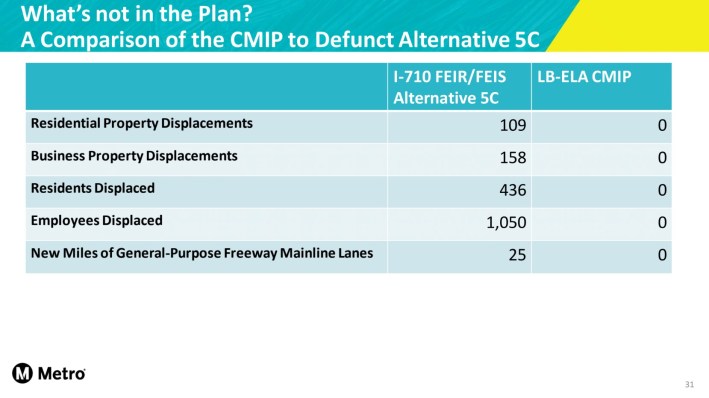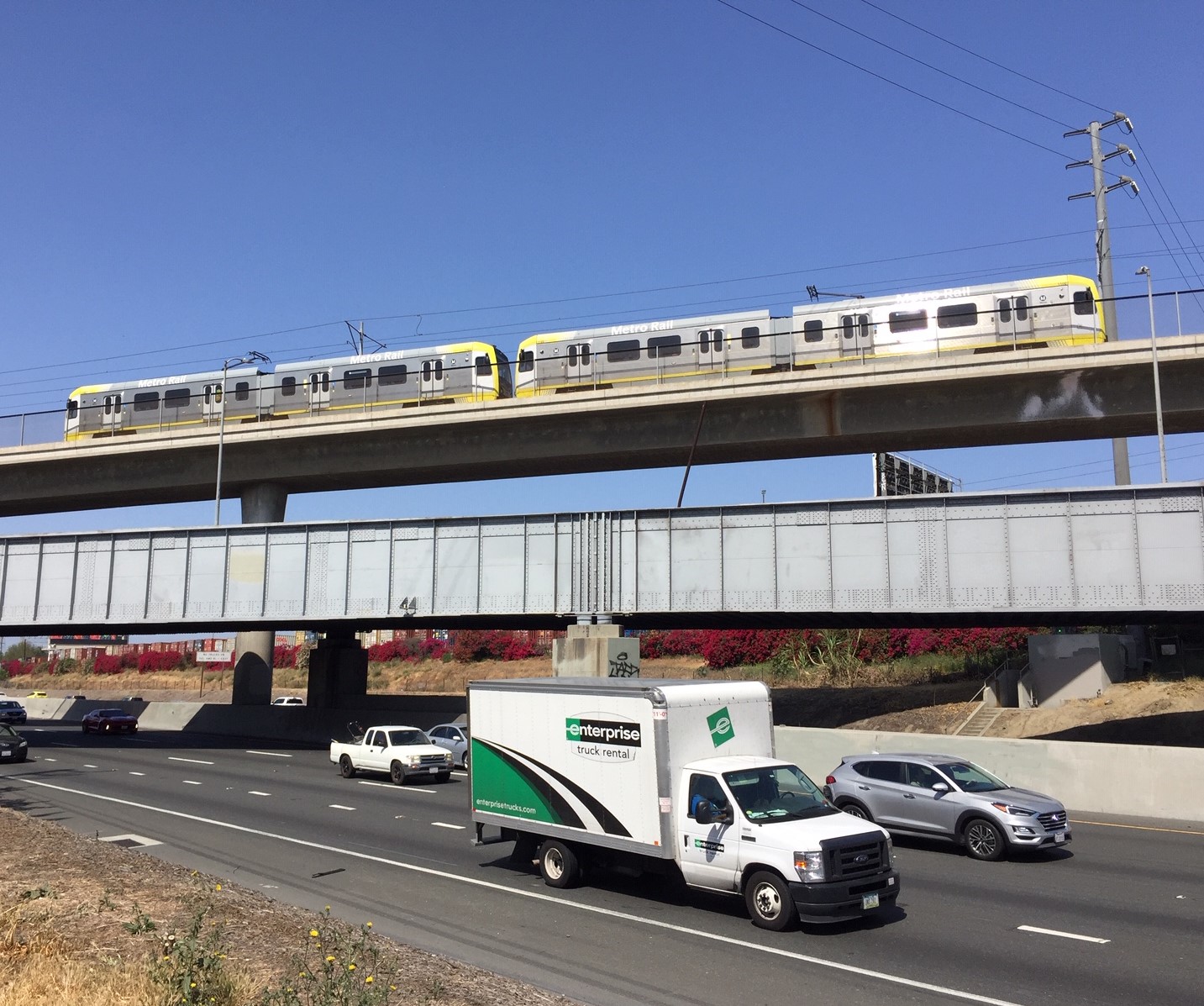This week the Metro board Planning Committee approved the agency's revised plans for widening the lower 710 Freeway. Metro's new 710 widening plan - called the Long Beach-East Los Angeles Corridor Mobility Investment Plan (CMIP) - includes adding about four new 710 Freeway lane-miles in the city of Long Beach. This is a welcome reduction from Metro and Caltrans' $6 billion 2018 plan which would have added more that 40 miles of new lanes.
In 2022 Metro canceled the earlier widening plan, after it was shown to violate the federal Clean Air Act. Metro promised to instead come up with a new 710 plan that would not widen the 710, nor displace residents. Metro convened a stakeholder task force to oversee developing a new "multimodal investment plan" for the 710 corridor.
Though it has many details still to be fleshed out, the resulting CMIP is definitely multimodal. More than a third of the remaining $743M project budget would go to facilities for transit, bicycling, and/or minimizing goods movement emissions.
But Metro also still clearly plans to expand the car capacity of the 710 freeway. This includes adding about four miles of new auxiliary lanes, plus about a dozen "interchange improvements" and "connector improvements" that typically include widening freeways, ramps, and/or connecting streets.
When Metro presented their new 710 widening plan in January, the agency would not rule out home demolitions. This prompted County Supervisor Janice Hahn to come out strongly against any residential displacement for 710 Freeway expansion.
Then Metro started to change its tune regarding displacements for 710 widening.

In a late February presentation to its 710 corridor task force, Metro shared a chart (above) that showed that its current 710 widening plan would have zero displacements of residential or business properties.
The text in Metro's CMIP is a little less decisive than the zeroes in Metro's chart.
That plan includes a lot of wiggle language, including citing "minimal or no displacement" and "no known displacement" numerous times, plus pledges to "avoid significant displacement."
Metro Deputy Executive Officer Michael Cano was similarly both reassuring and somewhat cagey at this week's Planning Committee meeting [video - minute 29], where he stated, "What is not in the [710 CMIP] plan is simply that we are not going to have any projects - that we have recommended for funding - that have any known displacements, any widening of the 710 Freeway, or adding additional general purpose travel lanes - whether on the freeway or on the arterial roadways, when we're doing our complete streets projects."
Metro, by Cano's own repeated admission, has been studying these 710 Freeway widening components for more than 20 years. At this point all these project "displacements" really should be "known" (or, before any approvals, studied until they are known.) If Metro doesn't know about any displacements at this point, they should, in Hahn's words, provide an "ironclad commitment that no one will be forced to move."
The 710 CMIP goes to the full Metro board for approval at next Thursday's board meeting.





